Discover the hidden layers of Zoan, a biblical city entwined with prophecy and royal intrigue, waiting to unveil its ancient secrets.
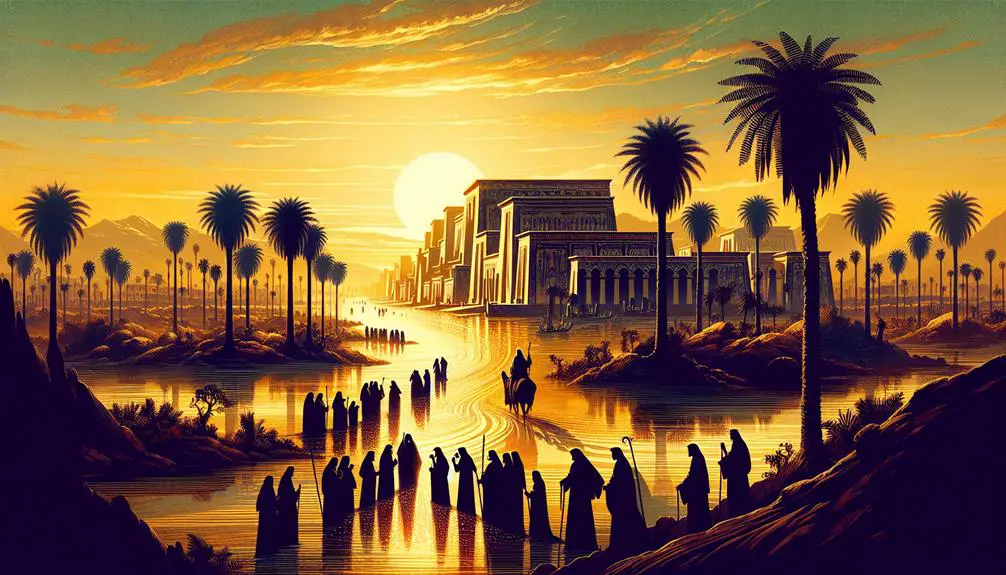
Zoan in the Bible
Isn't it curious how often you come across places in the Bible whose names seem to fade into the background, yet hold significant stories? Take Zoan, for example.
You might know it as a mere dot on the ancient map of Egypt, but this city has layers of history that intertwine with biblical narratives, especially in the book of Exodus.
As you explore its role, from being a stage for Pharaoh's court to the setting of profound prophecies, you'll find yourself at the crossroads of archaeology and theology.
The question then becomes, what secrets does Zoan hold that can shed light on its spiritual significance and historical reality?
Key Takeaways
- Zoan serves as a critical location in biblical narratives, symbolizing spiritual conditions and themes of faith and judgment.
- Archaeological findings in Zoan offer insights into its historical, spiritual, and cultural significance in biblical times.
- Prophetic perspectives in Zoan's story provide deeper understanding of its role in divine judgment and redemption narratives.
- Zoan's history and symbolism teach lessons on the dangers of spiritual blindness and the importance of maintaining faith.
The Historical Geography of Zoan
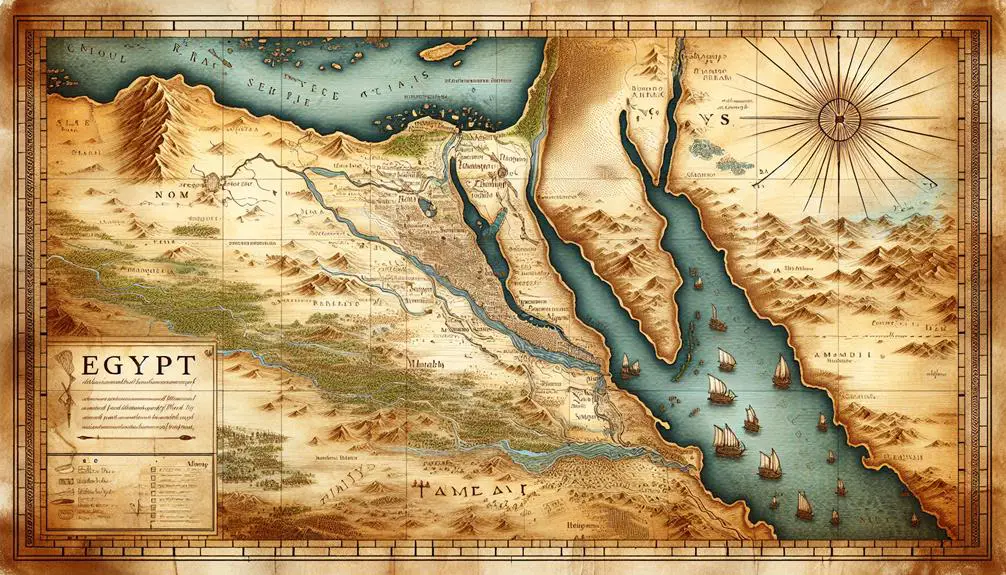
Nestled in the eastern Nile Delta, Zoan serves as a testament to the intricate relationship between geography and historical development in ancient civilizations. The city's strategic location and unique climate conditions played pivotal roles in shaping its historical trajectory. Zoan's climate, characterized by its temperate weather patterns, allowed for the flourishing of agriculture, which was the backbone of ancient economies. This agricultural prosperity became the cornerstone of Zoan's development, turning it into a hub of socio-economic activity.
Moreover, Zoan's geographical positioning at the crossroads of several critical trade routes significantly enhanced its importance. These trade routes not only facilitated the exchange of goods but also ideas, cultures, and technologies with neighboring regions and beyond. As a result, Zoan emerged as a vibrant melting pot of cultures and a central node in the ancient world's trade network. The city's accessibility to various navigable waterways further underscored its role as a key trade center. The interplay between Zoan's climate and its strategic location along these trade routes catalyzed its growth and prosperity, embedding the city firmly in the annals of history.
Analyzing Zoan's historical geography illuminates the profound impact of natural and geographical factors on the development of civilizations. It underscores the fact that cities like Zoan didn't merely exist in isolation but were deeply interconnected with broader historical processes and environmental conditions. This analytical lens offers invaluable insights into understanding the complexities and dynamics of ancient societies and their enduring legacies.
Zoan in Biblical Narratives
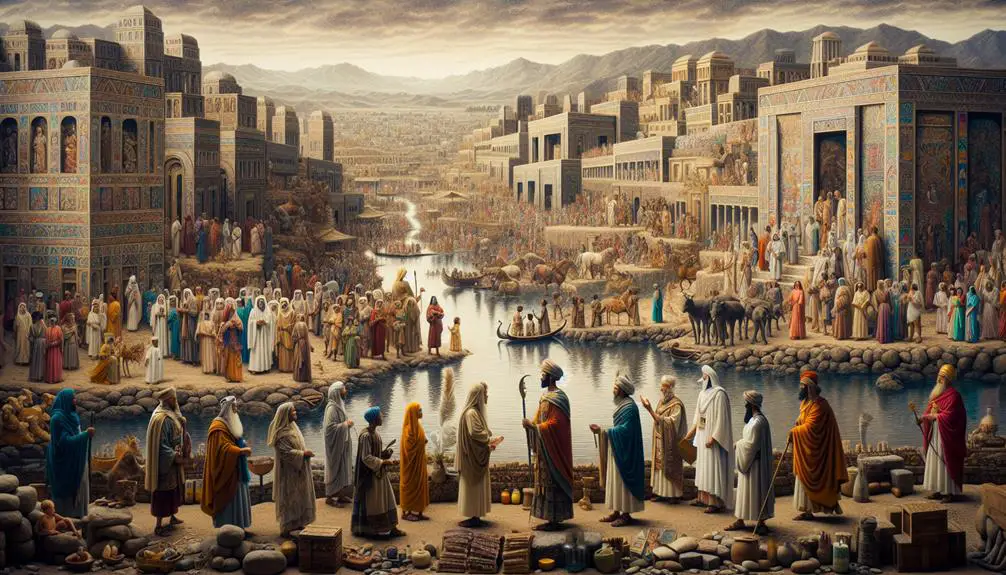
Within the tapestry of Biblical narratives, Zoan stands out as a significant location, enriched by its historical and theological context. You'll find that its mention isn't merely geographical; it serves as a backdrop to pivotal moments that resonate through time. Zoan's founding, as referenced in the scriptures, brings forth a narrative depth, weaving together its ancient origins with the unfolding divine story. This ancient city, known for its strategic and economic importance, is spotlighted in various texts, showcasing its role beyond a mere point on a map.
Analyzing Zoan in the Bible, you uncover layers of meaning that extend into modern parallels. The city's portrayal isn't static; it evolves, reflecting the dynamic interplay between divine intention and human action. This evolution is evident in the way biblical authors use Zoan to symbolize states of moral and spiritual conditions. The narratives suggest that just as Zoan underwent transformations, so too does the spiritual journey of faith communities across ages.
Zoan becomes a lens through which you examine broader themes of faith, judgment, and redemption. Its historical significance is amplified by its theological implications, making it a compelling study for those exploring the interconnections between sacred landscapes and divine narratives. By delving into Zoan's role in biblical stories, you're invited to reflect on how ancient narratives continue to shape contemporary understanding of faith, community, and divine purpose. The exploration of Zoan, thus, transcends its ancient foundations, offering insights into the enduring relevance of biblical teachings in today's world.
The Role of Zoan in Exodus
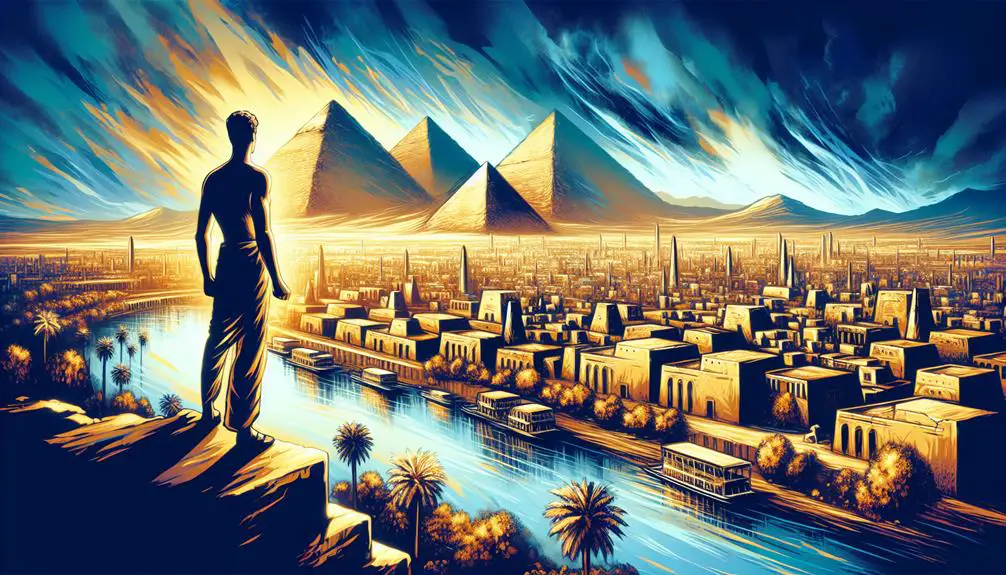
Exploring the role of Zoan in Exodus reveals how this ancient city served as a pivotal backdrop to the Israelites' journey towards liberation and faith. Zoan's location, positioned in the northeastern Nile Delta, made it a significant site in the Exodus chronology, functioning as a strategic point in the narrative of liberation. As you delve deeper into the text, you'll find that Zoan wasn't just a geographical location but a symbol of the power dynamics at play during the Exodus.
The city's proximity to the seat of Pharaonic power underscores its importance in the story. It's where Moses would have confronted Pharaoh, demanding the release of the Israelites. This confrontation is central to the Exodus narrative, showcasing Zoan as a stage where the struggle for freedom against oppression was vividly played out. The city thus emerges as more than a mere setting; it symbolizes the clash between divine will and human obstinacy.
Moreover, Zoan's mention in the context of the Exodus chronology serves to anchor the biblical narrative in a tangible historical and geographical framework. It provides a point of reference that ties the miraculous events described — from plagues to the parting of the Red Sea — to a known location in the ancient world. This connection between the narrative and a physical place adds a layer of depth to the understanding of the Israelites' journey, highlighting the interplay between faith, history, and geography in their pursuit of liberation.
In analyzing the role of Zoan, you're drawn into the complexities of the Exodus story, where geographical and spiritual landscapes intertwine, offering insights into the profound journey of a people towards freedom and faith.
Archaeological Discoveries in Zoan
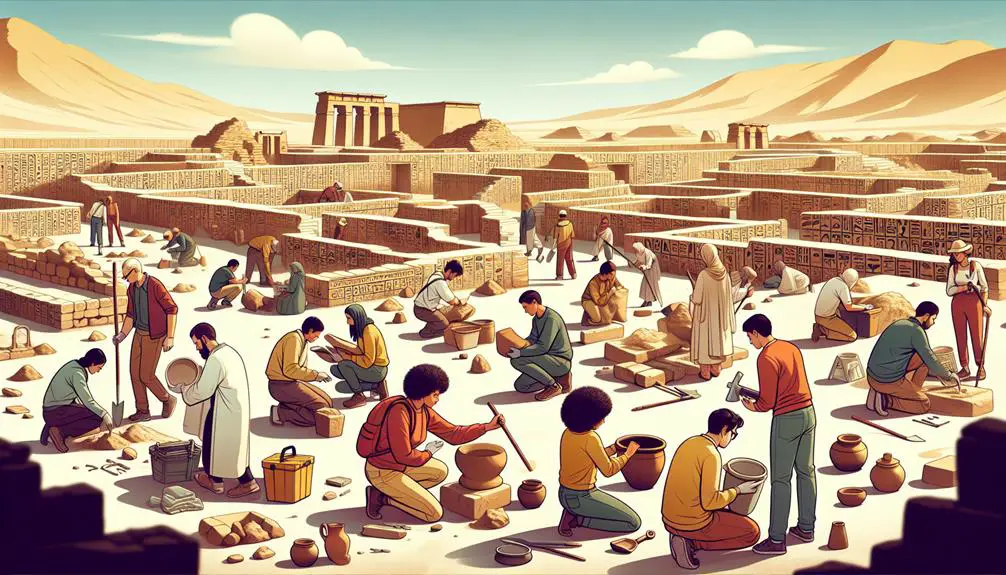
Recent archaeological excavations in Zoan have unearthed significant findings that shed light on its historical and biblical narratives. You're delving into a world where the past becomes almost tangible through the discovery of Zoan artifacts. These findings not only corroborate historical accounts but also provide a unique insight into the daily lives and technological advancements of its ancient inhabitants.
The excavation methods employed in Zoan are as varied as they're sophisticated, ranging from traditional digging techniques to the latest in geophysical surveying. These methods ensure that the recovery of artifacts is thorough and minimally invasive to the site, preserving the integrity of these ancient treasures. Through these meticulous processes, archaeologists have been able to piece together significant aspects of Zoan's past.
Key discoveries include:
- Religious artifacts: These items offer a glimpse into the spiritual life of Zoan, revealing the religious practices and beliefs of its people.
- Domestic utensils: From pottery to tools, these everyday objects provide insight into the domestic life of the ancient inhabitants.
- Structural remains: The foundations of buildings and other structures unearthed in Zoan help reconstruct its architectural landscape.
- Inscriptions: Texts discovered on stone tablets and walls offer valuable information on the language, governance, and social customs of the time.
Through these discoveries, you gain a deeper understanding of Zoan's role in historical and biblical contexts. The careful application of modern excavation methods ensures that each artifact's story is preserved and told, adding layers to our comprehension of this ancient city's significance.
Prophets and Prophecies Concerning Zoan
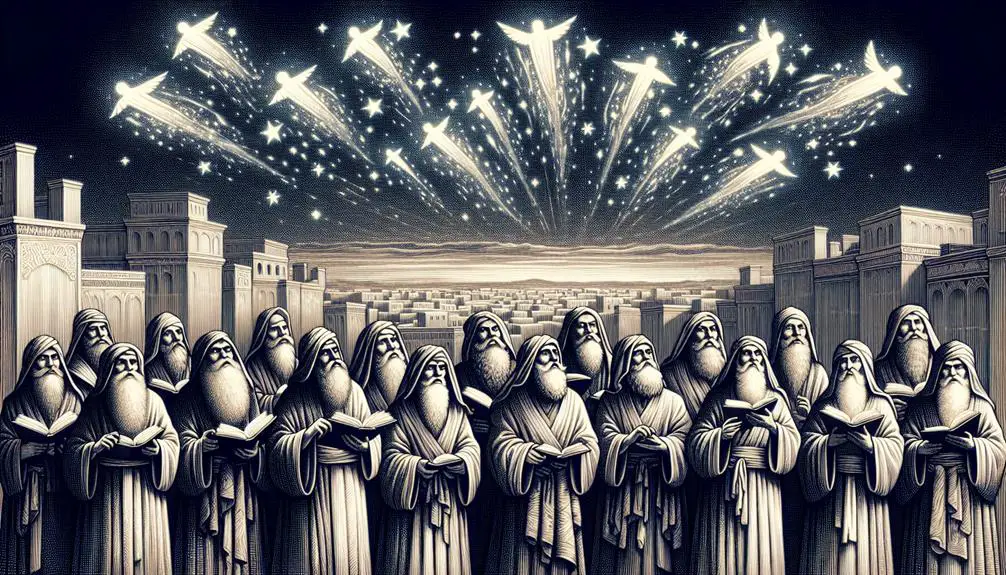
Building on the understanding gained from archaeological findings, it's crucial to examine the roles prophets and their prophecies played in shaping Zoan's biblical narrative. These prophetic visions and utterances not only provide insight into Zoan's historical and spiritual significance but also offer a lens through which Zoan's legacy can be viewed in light of modern interpretations.
Prophet |
Prophecy Impact on Zoan |
|---|---|
Isaiah |
Foretold its desolation, emphasizing how once mighty cities can fall. |
Ezekiel |
Highlighted Zoan's wisdom and its eventual downfall, linking it to divine judgment. |
Psalmist |
Referenced Zoan as a place of wonders, connecting its past glory to God's works. |
Hosea |
Used Zoan metaphorically to represent Israel's spiritual adultery and its consequences. |
Nahum |
Though not directly mentioning Zoan, his prophecies about Nineveh parallel Zoan's fate. |
These prophecies, when analyzed, reveal a complex narrative of divine warning, judgment, and the inevitable decline of a city that was once at the zenith of power and wisdom. Modern interpretations of these ancient texts suggest that Zoan's story is not just a historical account but a cautionary tale about pride, disobedience, and the transient nature of earthly power.
Analyzing these prophecies in the context of Zoan's archaeological and historical backdrop enables a deeper appreciation of Zoan's legacy. It illustrates how the city's story resonates with contemporary themes of hubris, moral decay, and the quest for spiritual authenticity. Through this lens, Zoan's narrative transcends its ancient origins, offering timeless insights into human nature and divine providence.
Zoan During the Plagues of Egypt
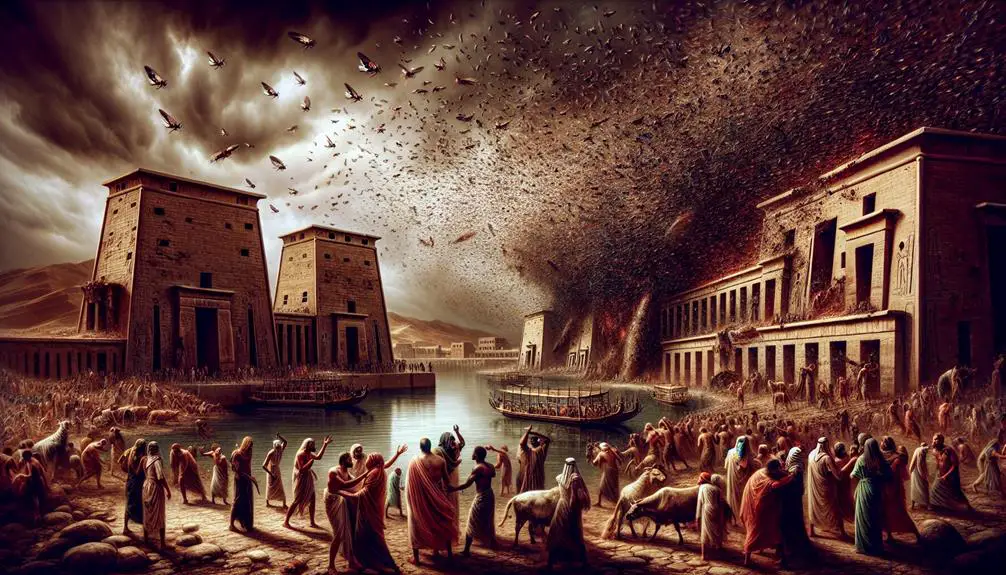
During the biblical plagues of Egypt, Zoan stood as a pivotal location, witnessing firsthand the profound and devastating impacts of these divine interventions. As you delve into this period, it's crucial to understand how these events affected Zoan's economy and cultural practices, shedding light on the city's significance during this tumultuous era.
Zoan, being a significant urban center, experienced direct consequences on its economy due to the plagues. The agricultural sector, a cornerstone of Zoan's economy, faced unprecedented challenges. The plagues of locusts, hail, and darkness devastated crops, leading to severe food shortages and economic downturn. This disruption not only affected the local inhabitants' daily sustenance but also had ripple effects on trade and commerce, pivotal components of Zoan's economic framework.
The cultural practices in Zoan, deeply intertwined with the Nile's cycles and agricultural prosperity, were significantly disrupted. The plagues, interpreted as divine wrath, prompted a reevaluation of religious beliefs and practices among the populace. This period of turmoil led to introspection and shifts in cultural narratives, as the community sought explanations and solace amidst the chaos.
- Impact on Agriculture: Complete devastation of crops, leading to food scarcity.
- Economic Downturn: Trade and commerce suffered due to the agricultural collapse.
- Cultural Reevaluation: The plagues prompted a shift in religious beliefs and practices.
- Community Impact: The societal fabric of Zoan was tested as it navigated through these challenges.
Connections to Ancient Rulers
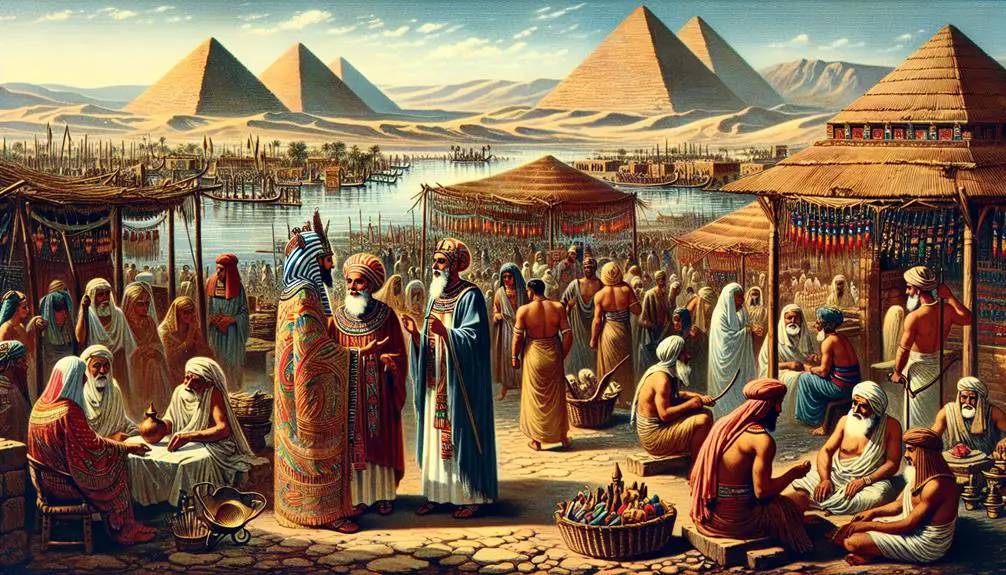
Zoan's significance in the ancient world is further illuminated by its connections to ruling pharaohs and their monumental decisions that shaped the course of history. You'll find that Zoan wasn't just any city; it was a pivotal stage where the narratives of ancient governance and ruler legacies intertwined, offering a unique insight into the political and social dynamics of the time.
The city's prominence under various pharaohs underscores its strategic and political importance. It served not only as a capital but also as a testament to the pharaohs' ambition to immortalize their reign through architectural and administrative achievements. The rulers associated with Zoan left behind a legacy that extends beyond their dynasties, reflecting on the city's role in ancient governance.
Here's a table that highlights key connections between Zoan and ancient rulers:
Pharaoh |
Contribution to Zoan |
|---|---|
Ramses II |
Established Zoan as his northern capital, enhancing its political status. |
Merneptah |
Inscribed his victories on steles found in Zoan, linking the city to his military achievements. |
Amenemhat III |
Known for advancements in the region, possibly influencing the infrastructure of Zoan. |
These connections emphasize the city's centrality in the narratives of power, governance, and legacy. Each ruler's association with Zoan not only highlights their administrative and military endeavors but also cements the city's place in the annals of ancient history. Through these legacies, you gain an understanding of how Zoan served as a backdrop to significant chapters in the story of ancient Egypt, underlining its importance beyond mere geographical location.
Spiritual Significance of Zoan
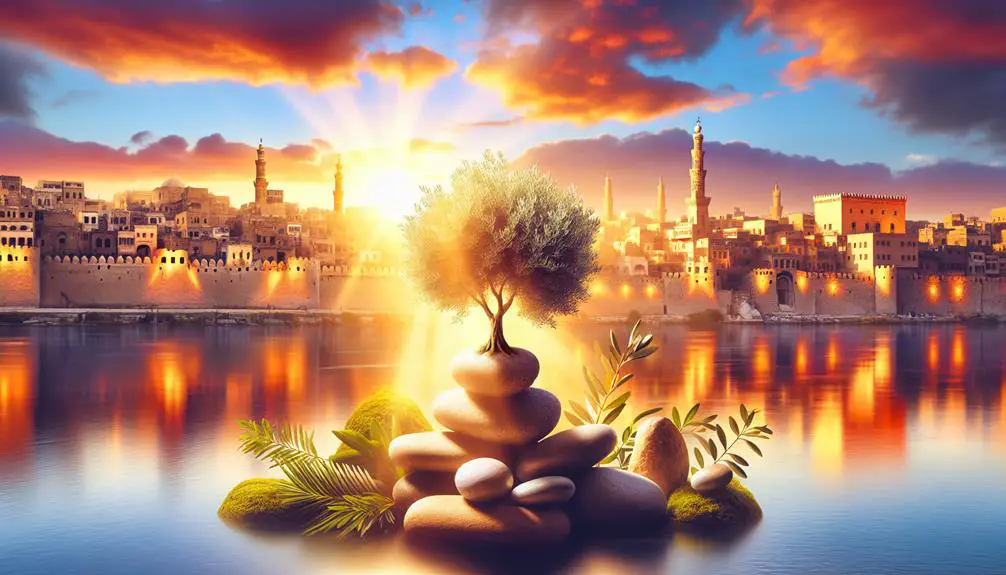
You'll find that Zoan's role in the Bible carries profound spiritual significance, informing both historical context and prophetic interpretation.
Through examining Zoan's biblical role, its history provides key lessons on divine intervention and human leadership.
Furthermore, Zoan's prophetic symbolism enriches our understanding of eschatological narratives within scriptural texts.
Zoan's Biblical Role
In biblical texts, Zoan holds a significant spiritual role, serving as a symbol of both ancient wisdom and divine judgment. Its foundation, dating back to seven years after Hebron, showcases a deep historical and spiritual lineage. The narrative of Zoan offers modern parallels, reflecting on how ancient lessons apply to contemporary spiritual journeys.
- Zoan's foundation underscores the importance of historical roots in understanding spiritual truths.
- Divine judgments pronounced against Zoan illustrate the consequences of straying from divine laws.
- Ancient wisdom gleaned from Zoan's story encourages a return to foundational spiritual principles.
- Modern parallels drawn from Zoan's experiences serve as a reminder of the timeless nature of spiritual lessons.
Analyzing Zoan within a biblical context reveals layers of spiritual significance, offering insights into both ancient and modern faith journeys.
Lessons From Zoan's History
Delving into the history of Zoan reveals profound spiritual lessons that resonate with individuals on their faith journeys. Zoan's downfall serves as a stark reminder of the perilous path that ensues when a society strays from its spiritual moorings. Cultural influences, often subtle and insidious, played a significant role in this decline.
As you reflect on Zoan's story, it becomes evident that the allure of surrounding cultures and their practices can gradually erode a community's foundational beliefs, leading to spiritual decay. This historical account underscores the importance of vigilance and discernment in preserving one's faith amidst external pressures.
It teaches that steadfastness in spiritual convictions is crucial, lest history's lessons be forgotten and repeated.
Zoan's Prophetic Symbolism
Exploring the spiritual significance of Zoan reveals its profound role as a prophetic symbol within biblical narratives. Modern interpretations often emphasize its representation of spiritual stagnation or judgment, drawing symbolic parallels with contemporary spiritual conditions.
- Zoan as a metaphor for spiritual blindness, where the refusal to see God's truth leads to downfall.
- Its role as a symbol of divine judgment, illustrating the consequences of turning away from spiritual guidance.
- The city's representation of human pride and rebellion against divine authority.
- Zoan's example of God's mercy and patience, offering redemption despite repeated transgressions.
Through these lenses, Zoan's story transcends its historical context, offering timeless insights into the nature of spiritual rebellion and redemption.
Frequently Asked Questions
How Has the Understanding of Zoan's Location Influenced Modern Archaeological Methods and Technologies?
By pinpointing Zoan's location, you've seen a shift toward using geophysical surveys and artifact digitization in archaeological methods. These advancements allow for non-invasive exploration, preserving the integrity of sites.
Geophysical surveys map subsurface features without digging, while artifact digitization creates detailed 3D models, enhancing analysis and preservation. This approach not only refines our understanding of historical locations but also sets a new standard in archaeological practices, emphasizing technology's role in uncovering the past.
In What Ways Have Contemporary Scholars Reconciled Discrepancies Between Biblical Accounts of Zoan and Historical Records?
Navigating the maze of ancient narratives, you find scholars using textual analysis like torches, illuminating the path toward reconciling discrepancies. They meticulously align the chronology of events, bridging gaps between historical records and traditional accounts.
This chronological alignment, akin to piecing together a jigsaw puzzle, ensures a harmonious picture emerges. Contemporary scholars, through analytical and objective lenses, have thus woven a tapestry that honors both historical accuracy and traditional narratives.
How Has the Depiction of Zoan in Popular Culture (Films, Literature, Etc.) Differed From Its Biblical and Archaeological Representations?
You'll notice that cinematic Zoan and literature adaptations often diverge from its biblical and archaeological representations. This creative freedom allows for more engaging narratives but can blur historical accuracy.
In popular culture, Zoan is sometimes depicted with added mysticism or romanticized elements, differing significantly from its documented past. These portrayals influence public perception, yet they offer a unique lens through which to explore and reimagine historical and religious contexts.
What Role Has Zoan Played in Interfaith Dialogues, Especially Among Judaism, Christianity, and Islam?
You're exploring how ancient symbols and modern interfaith methodologies intersect, focusing on Zoan. This city, rich with history, plays a pivotal role in fostering dialogue among Judaism, Christianity, and Islam.
By examining Zoan's symbols, you delve into how they've been interpreted and reinterpreted across these faiths, offering a unique lens for scholarly analysis.
This approach highlights the city's significance in promoting understanding and cooperation among diverse religious traditions.
How Do Environmental Changes in the Region Around Ancient Zoan Impact Our Interpretation of Its Historical and Spiritual Significance?
Environmental shifts around ancient Zoan significantly influence your understanding of its history and spirituality. Climate adaptation and changes in agricultural practices reflect how communities respond to their surroundings, affecting societal structures and religious practices.
Analyzing these shifts offers insights into the resilience and innovation of ancient societies. Thus, by studying environmental impacts, you can gain a deeper appreciation for Zoan's role in history, beyond its scriptural mentions.
Conclusion
In your exploration of Zoan, you've traversed from its earthly coordinates to its biblical essence, juxtaposing ancient ruins with holy narratives. You've seen how stones and scriptures weave a tale of divine intervention, where prophets' words echo across time.
Through archaeological layers, you've touched the plagues, felt the pharaohs' presence, and glimpsed its spiritual heart. This journey into Zoan isn't just about unearthing history; it's about connecting to a story that shapes faith and understanding across millennia.

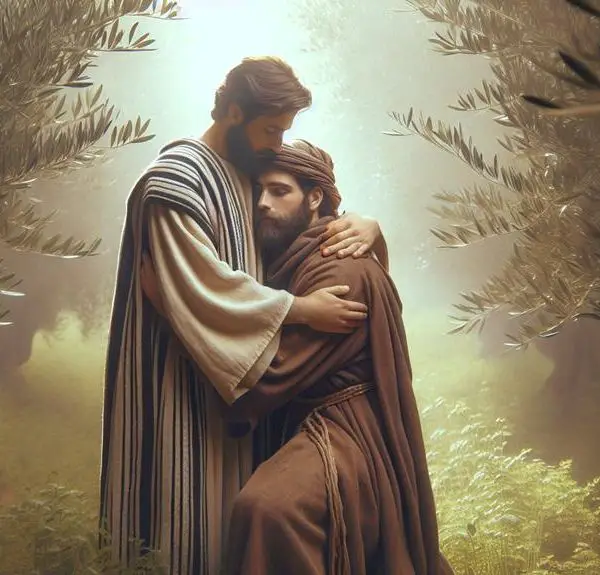
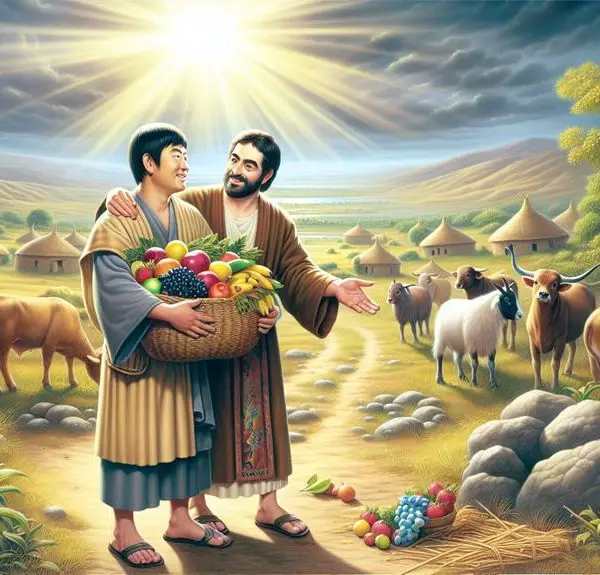
Sign up